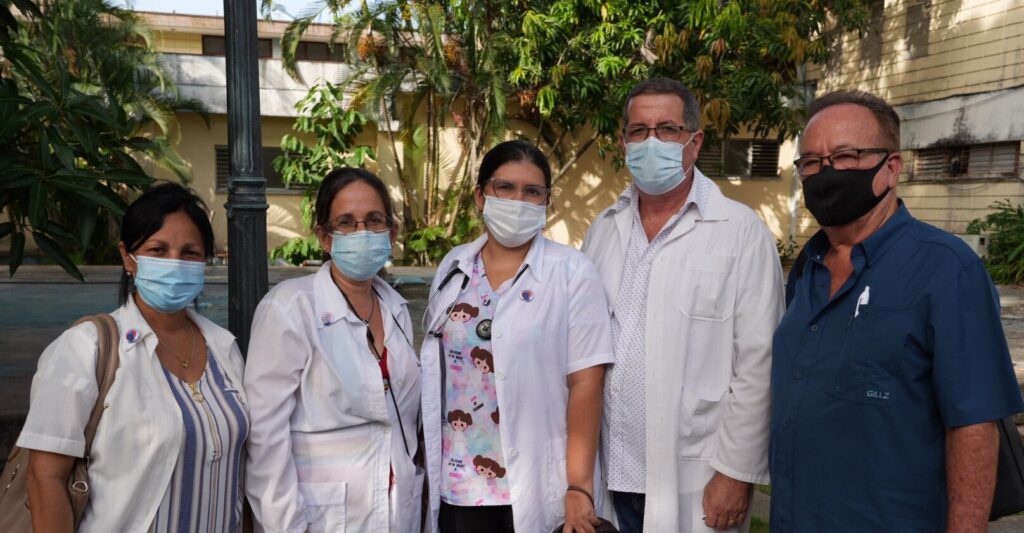by Cecilia Paz
reprinted from Liberation News
[Note: although this article is dated Sept. 1, it describes the experiences of the author who was in Cuba in July, predating the Matanzas fire, as part of a delegation of activists delivering the first shipment of medicines to Cuba on behalf of the Hatuey Project.]

In late July, I traveled to Cuba as part of a delegation of anti-blockade activists delivering medicine. Three days into my trip, I tested positive for COVID-19. During my seven days in quarantine, I experienced Cuba’s deeply compassionate healthcare system and thorough COVID-19 protocol firsthand.
I got my positive test results while staying in Villa Clara, a province about three hours from Havana. In the United States, COVID patients have to seek out tests on their own, deal with expensive insurance and bills, and find their own transportation to healthcare facilities. In Cuba, within a few hours of taking a positive rapid test I was visited by a doctor who gave me a PCR test, checked my symptoms, and completed a detailed account of my whereabouts since my arrival for contract-tracing purposes.
Free, quality healthcare is guaranteed to all Cuban citizens and even foreigners like myself. In the United States by contrast, seeing a doctor is costly and tests are difficult to access. In New Orleans where I live, PCR tests are almost exclusively available at drive-through pharmacies. After being exposed to COVID-19 in the United States this past February, I walked for 30 minutes to my nearest drive-through PCR test and was refused a test because I was on foot.
For the next five days after testing positive, I was visited daily by doctors who checked my vitals, asked me questions about symptoms, and asked if there was anything I needed. My case was mild, but for someone dealing with more serious COVID symptoms or complications, this thorough and persistent care could make the difference between life and death. In fact, Cuba’s mortality rate rate for positive COVID cases is 0.77%, significantly lower than 1.1% in the United States – that means that someone who contracts COVID in the United States is about 40 percent more likely to die than someone who gets the disease in Cuba.
Despite my patchy Spanish, doctors, nurses, and workers at the Cuban Institute of Friendship with the Peoples (ICAP) did everything they could to communicate effectively with me. Despite all the difficulties the country is experiencing because of the U.S. blockade, I was provided with three delicious, home cooked meals per day in addition to tea and bottled water. Several friendly workers at ICAP visited me every day, at a distance and with PPE. I was scared to spend isolation in an unfamiliar place, but they consistently made up the best parts of my day.
Quality medical care did not prevent me from feeling isolated and anxious, but everyone providing me with care took my mental health into consideration as well, and did everything they could to cheer me up. One morning when I was feeling down, the ICAP workers invited me to sit at a distance outside with them and chat and have coffee. They took turns sharing stories of their experiences with COVID and told me about their lives, and soon enough my anxiety was replaced by the warm, cheerful feeling of community.
